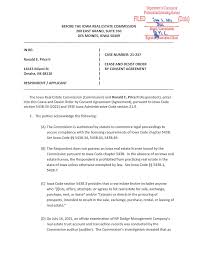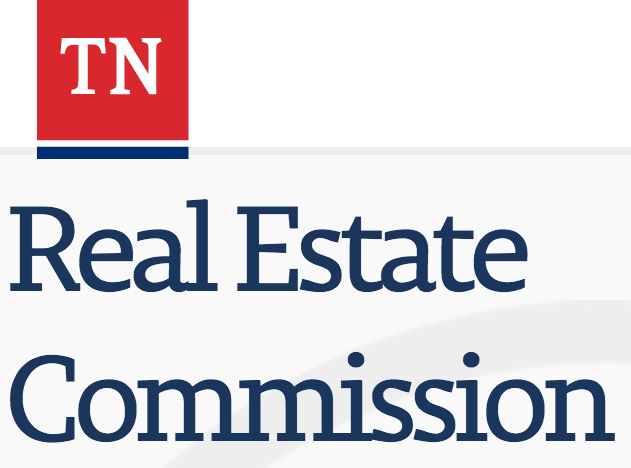
GRI is one step closer towards being an elite realty professional. This designation will provide you with the knowledge and confidence you need to succeed in real estate, impress customers, and grow your company.
What is the Graduate, REALTOR Institute (GRI)?
GRI is the highest standard in real estate education. It's a proven way of increasing your income. It is widely accepted as the best way to advance in the industry, earn respect from peers, and be admired by consumers and other professionals.
It is the mark a real-estate professional who has made the effort to provide high quality professional service through a solid educational foundation. He or she is also dedicated to ensuring their clients are treated with professionalism and expertise.
According to the National Association of Realtors', GRIs make $30,000 more than non-GRIs each year.

Why Earn the GRI?
GRI is an effective tool to attract business and improve your skills in real estate. The GRI provides in-depth training on legal and regulatory issues, technology and the sales process.
To obtain the GRI, you must complete at least 90 hours of approved courses. These courses can be taken online, or in a classroom setting. The instructors are top professionals in their field.
You can either earn the GRI in five years or take your time to study the industry and prepare for it. The courses cover topics like negotiating, risk reduction and technology. You can also choose to concentrate on one area of real estate such as international sales or property management.
How can the GRI help me?
The Graduate, REALTOR® (GRI) program is nationally accredited and provides you the skills and education necessary to excel in your real-estate career. You will be able communicate clearly and confidently with sophisticated homebuyers as well as sellers.
No matter if you are a newbie or an expert, the GRI gives you the edge you need in order to succeed. You will be able to build a strong foundation for your career in real estate and your personal life.

What's the difference between a GRI or a CRS?
GRI is the most widely recognized designation for real estate agents and the only one that counts toward being a member of National Association of Realtors. This elite group of real estate agents have completed an extensive series of courses that demonstrate their deep understanding of the business.
This mark is the result of specialized training. It gives you the competitive advantage that you need to build your real estate business and earn more. It is the highest possible real estate designation and is essential for the future of your profession.
FAQ
What is the average time it takes to get a mortgage approval?
It is dependent on many factors, such as your credit score and income level. Generally speaking, it takes around 30 days to get a mortgage approved.
Do I need flood insurance
Flood Insurance protects you from flooding damage. Flood insurance can protect your belongings as well as your mortgage payments. Find out more information on flood insurance.
What is a "reverse mortgage"?
Reverse mortgages allow you to borrow money without having to place any equity in your property. It allows you to borrow money from your home while still living in it. There are two types: government-insured and conventional. With a conventional reverse mortgage, you must repay the amount borrowed plus an origination fee. FHA insurance will cover the repayment.
Is it better to buy or rent?
Renting is generally less expensive than buying a home. It's important to remember that you will need to cover additional costs such as utilities, repairs, maintenance, and insurance. There are many benefits to buying a home. For example, you have more control over how your life is run.
What time does it take to get my home sold?
It depends on many factors, such as the state of your home, how many similar homes are being sold, how much demand there is for your particular area, local housing market conditions and more. It may take 7 days to 90 or more depending on these factors.
Statistics
- Over the past year, mortgage rates have hovered between 3.9 and 4.5 percent—a less significant increase. (fortunebuilders.com)
- The FHA sets its desirable debt-to-income ratio at 43%. (fortunebuilders.com)
- When it came to buying a home in 2015, experts predicted that mortgage rates would surpass five percent, yet interest rates remained below four percent. (fortunebuilders.com)
- This means that all of your housing-related expenses each month do not exceed 43% of your monthly income. (fortunebuilders.com)
- Based on your credit scores and other financial details, your lender offers you a 3.5% interest rate on loan. (investopedia.com)
External Links
How To
How to Manage a Rental Property
You can rent out your home to make extra cash, but you need to be careful. We will show you how to manage a rental home, and what you should consider before you rent it.
Here are some things you should know if you're thinking of renting your house.
-
What factors should I first consider? Before you decide if your house should be rented out, you need to examine your finances. If you have debts, such as credit card bills or mortgage payments, you may not be able to afford to pay someone else to live in your home while you're away. Your budget should be reviewed - you may not have enough money to cover your monthly expenses like rent, utilities, insurance, and so on. It might not be worth the effort.
-
What is the cost of renting my house? There are many factors that go into the calculation of how much you can charge to let your home. These factors include location, size, condition, features, season, and so forth. Prices vary depending on where you live so it's important that you don't expect the same rates everywhere. The average market price for renting a one-bedroom flat in London is PS1,400 per month, according to Rightmove. This means that if you rent out your entire home, you'd earn around PS2,800 a year. It's not bad but if your property is only let out part-time, it could be significantly lower.
-
Is it worth the risk? You should always take risks when doing something new. But, if it increases your income, why not try it? Make sure that you fully understand the terms of any contract before you sign it. Not only will you be spending more time away than your family, but you will also have to maintain the property, pay for repairs and keep it clean. You should make sure that you have thoroughly considered all aspects before you sign on!
-
Are there any benefits? So now that you know how much it costs to rent out your home and you're confident that it's worth it, you'll need to think about the advantages. You have many options to rent your house: you can pay off debt, invest in vacations, save for rainy days, or simply relax from the hustle and bustle of your daily life. It is more relaxing than working every hour of the day. If you plan well, renting could become a full-time occupation.
-
How can I find tenants? After you have decided to rent your property, you will need to properly advertise it. Listing your property online through websites like Rightmove or Zoopla is a good place to start. Once potential tenants reach out to you, schedule an interview. This will enable you to evaluate their suitability and verify that they are financially stable enough for you to rent your home.
-
What can I do to make sure my home is protected? If you don't want to leave your home empty, make sure that you have insurance against fire, theft and damage. Your landlord will require you to insure your house. You can also do this directly with an insurance company. Your landlord will often require you to add them to your policy as an additional insured. This means that they'll pay for damages to your property while you're not there. This does not apply if you are living overseas or if your landlord hasn't been registered with UK insurers. In this case, you'll need to register with an international insurer.
-
You might feel like you can't afford to spend all day looking for tenants, especially if you work outside the home. Your property should be advertised with professionalism. Post ads online and create a professional-looking site. Additionally, you'll need to fill out an application and provide references. Some people prefer to do everything themselves while others hire agents who will take care of all the details. You'll need to be ready to answer questions during interviews.
-
What happens once I find my tenant If you have a current lease in place you'll need inform your tenant about changes, such moving dates. Otherwise, you can negotiate the length of stay, deposit, and other details. Keep in mind that you will still be responsible for paying utilities and other costs once your tenancy ends.
-
How do I collect my rent? When the time comes for you to collect the rent you need to make sure that your tenant has been paying their rent. If your tenant has not paid, you will need to remind them. Before you send them a final invoice, you can deduct any outstanding rent payments. If you're having difficulty getting hold of your tenant you can always call police. They will not normally expel someone unless there has been a breach of contract. However, they can issue warrants if necessary.
-
What are the best ways to avoid problems? Although renting your home is a lucrative venture, it is also important to be safe. Ensure you install smoke alarms and carbon monoxide detectors and consider installing security cameras. Also, make sure you check with your neighbors to see if they allow you to leave your home unlocked at night. You also need adequate insurance. You should never allow strangers into your home, no matter how they claim to be moving in.